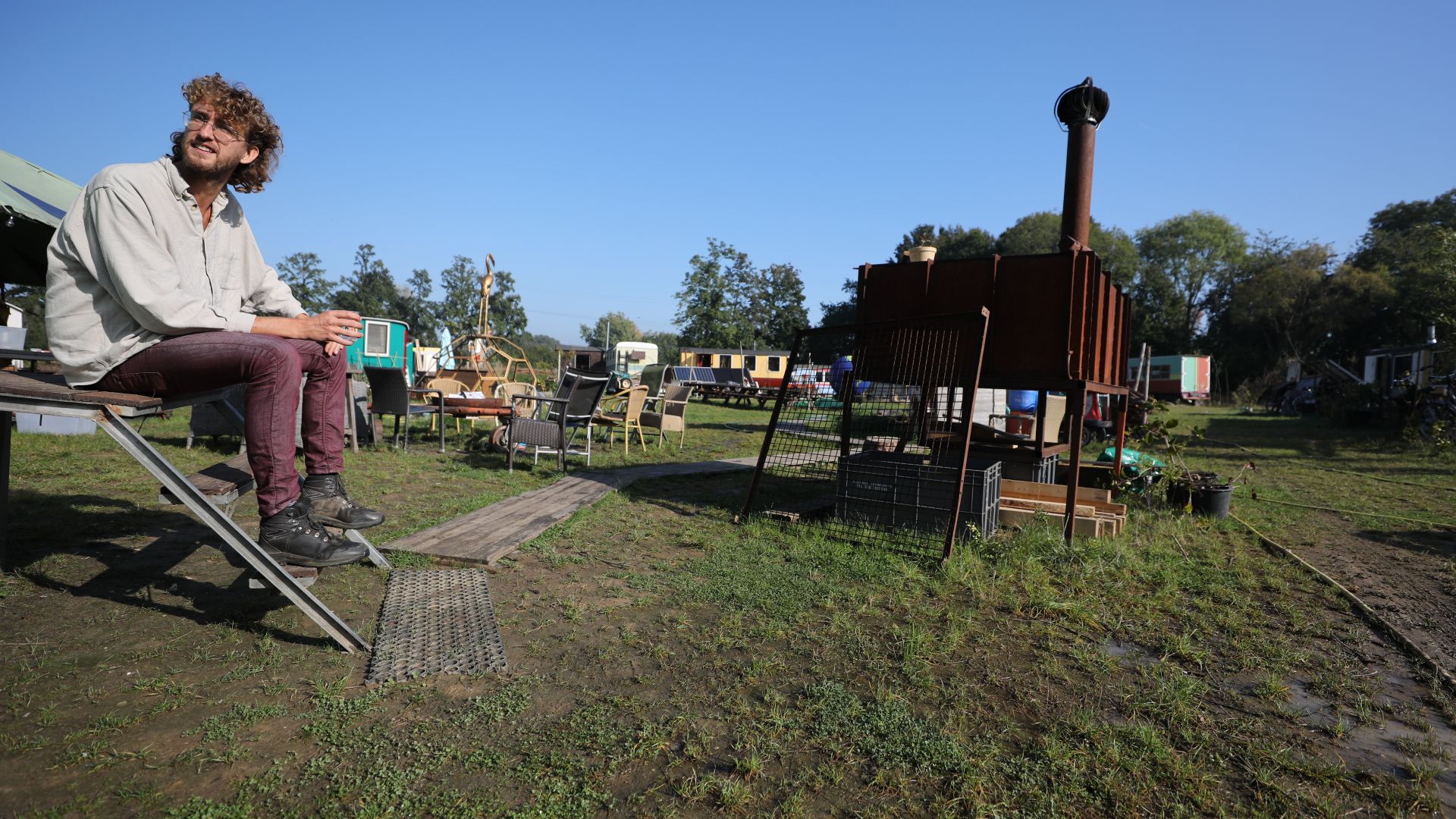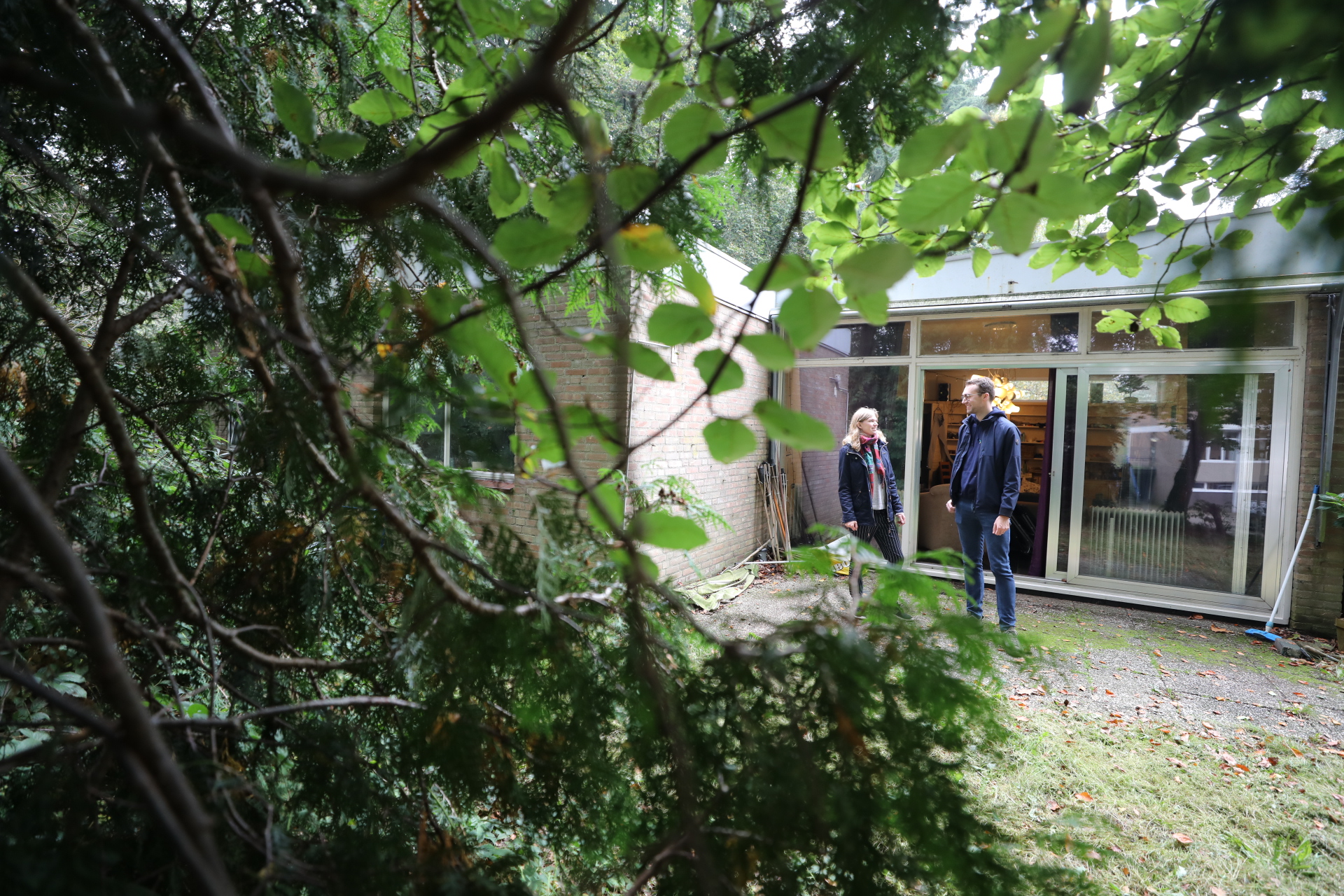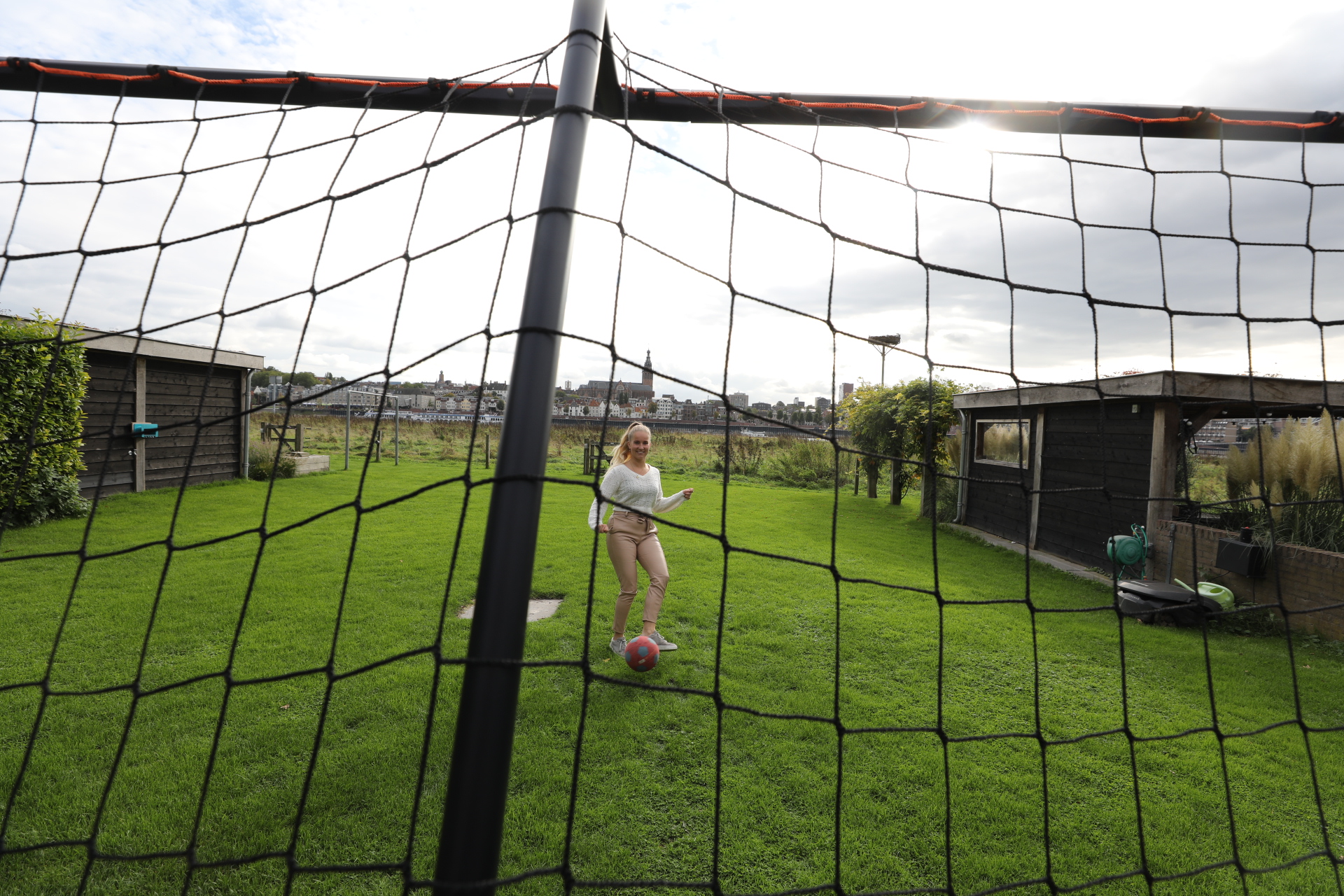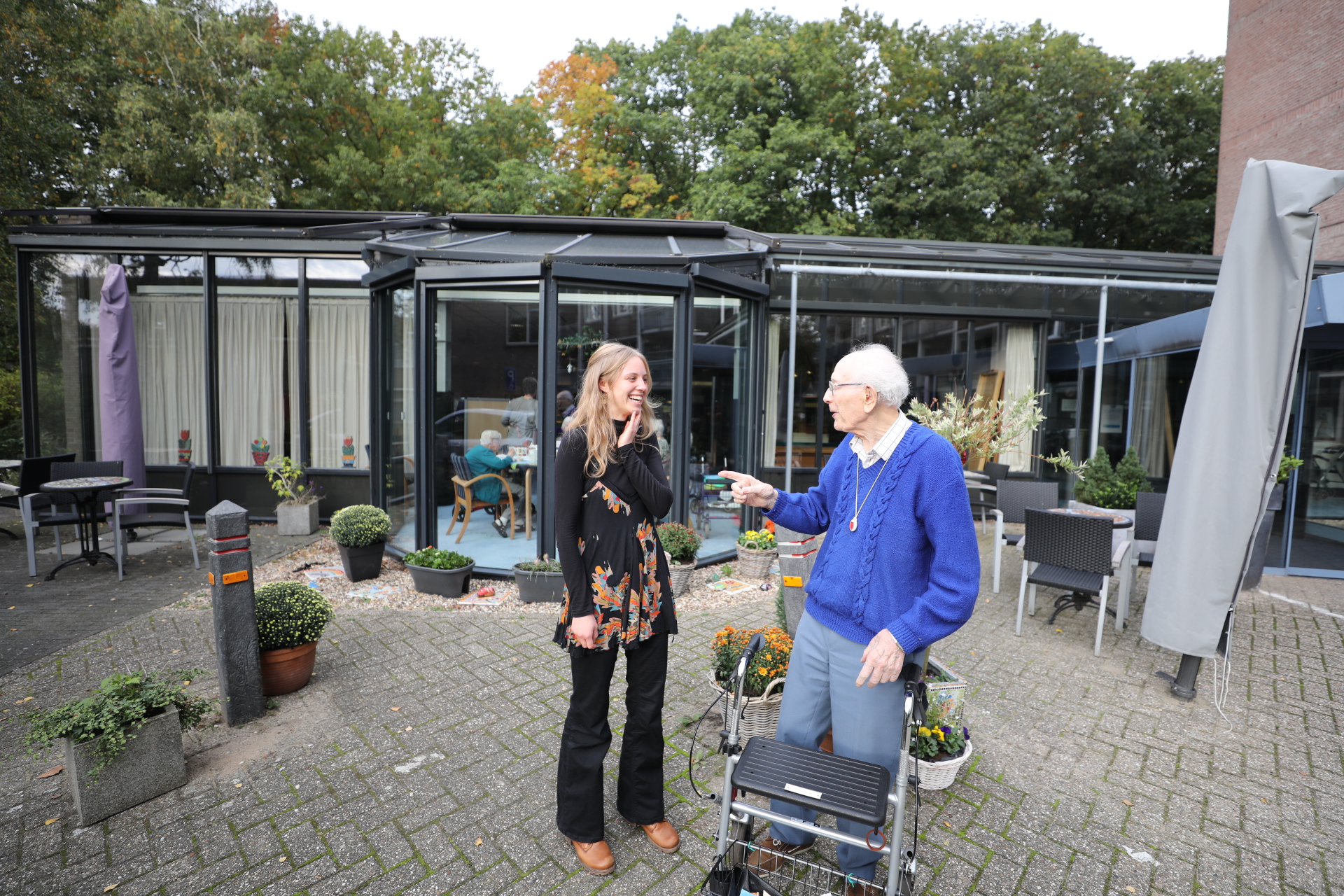Alternative housing: These students did not opt for an average student flat
-
 Max Receveur. Photo: Duncan de Fey
Max Receveur. Photo: Duncan de Fey
Most students are familiar with the Sint Annastraat, Van Oldebarneveldtstraat or Burghardt van den Bergstraat. These students, however, prove that there are valid alternatives: They found their new homes on an island, in a nomad settlement and a nursing home.
Max Receveur, 29 years old, Philosophy student
‘What makes this place unique is the stunning nature. When I look out of the window, I only see greenery. At night I can hear owls calling. The confrontation with the elements, in the form of rain or frost, sometimes makes living here challenging, but it also teaches you to be creative.’
‘The locations where we live are always temporary: we move our wagons from place to place. We first lived in Lent near the Griftdijk, although I feel much more at home here in Dukenburg. And there’s a lot more going on: almost every day, people walking their dogs stop by for a chat, or the teachers from the school across from us come and pay us a visit.’
‘No single day is boring. The travelling aspect, combined with the feeling of being at home, that’s what makes me feel really comfortable here living among the Stadsnomaden. Our animals also make my life here complete. We have three cats, two dogs, and some twenty chickens. Internet and a smartphone are things that I consciously choose not to have. I’d rather sit in the sun with a cup of coffee and a good book and think about life.’
Alissa Zennipman, 24 years old, Physiotherapy student
‘I moved to Veur-Lent two weeks before the start of the COVID-19 pandemic, which meant I couldn’t throw myself into real student life straight away. But I didn’t find this to be a problem. I don’t think many students had the opportunity to work or study from home with so little background noise and such a gorgeous view.’
‘Now, eighteen months later, things are very different. I have a really great time with my housemates. Especially in summer, it’s fantastic here. We barbecue nearly every day in our back garden. When the sun shines, we’re only a minute away from the Waal beach. And if you feel like having a cold beer, you don’t have to drag a cool box around – you just go inside and get one.’
‘There aren’t many students in this area. Our neighbour is our landlord. Some people would probably not want that, but our landlord is great! This winter, when the water of the Waal nearly reached our back garden and we had to clear out the garden, he even came around with some hot chocolate for us. This sense of conviviality inside and outside our house, the Waal beach, and our huge garden are all reasons I’m planning to stay put for now.’

Devlin Oosterwijk (27) and Femke van der Pal (26), graduates in Planning and Sociology
‘We often see deer in our back garden, which is probably something not many students can say. We live in the woods between Nijmegen and Groesbeek, on the Dekkerswald grounds. Whenever you’re in need of a study break, it’s incredible to be able to step straight into a nature walk. The biggest disadvantage is having to cycle to the shop, which is quite a distance away on top of a hill. Now that we’re a bit older, we’re lucky to have a car, but those years of cycling were pretty tough.’
‘Our house is a bungalow that used to house the Director of the healthcare group. He spent a few days a week here when he had to work. His neighbour across the street, the local game warden, still lives here. Although he’s retired, he still keeps an eye on things: we can’t do anything without him knowing about it. Which is actually quite funny, and we have a friendly relationship with him.’
‘Our status here recently changed to ‘anti-squatters’. The zoning plan for student housing wasn’t extended. Our house will soon be demolished, but we don’t mind. Few people can boast having had a house for so little money. And we had some great years here.’
Tirsa Prins, 24 years old, Psychology student
‘Mr. Verheijen (98) is one of my oldest house-mates. We sometimes go for a walk together in the morning. With another inhabitant I like to cycle; we stop off on the way to get an ice-cream.’
‘I live in a nursing home with three other students. We can live here cheaply, but in exchange we have to do thirty hours of volunteer work a month. It can be anything: cooking, painting, drinking coffee, or going for a walk. The concept already existed in Amsterdam and we were the first to try it out in Nijmegen.’
‘After three years, I can safely say that it’s been a success: everyone’s enthusiastic about it. I’ve always wanted to do something for people who have been kind of forgotten, so coming to live here was a conscious choice. I enjoy bonding with the old people. The volunteer work has become a form a relaxation. After spending the whole day studying, it’s lovely to work together in the garden for an hour. Nor do I see the old people here as work or a goal: they’re simply my housemates, and some of them are my friends.’





